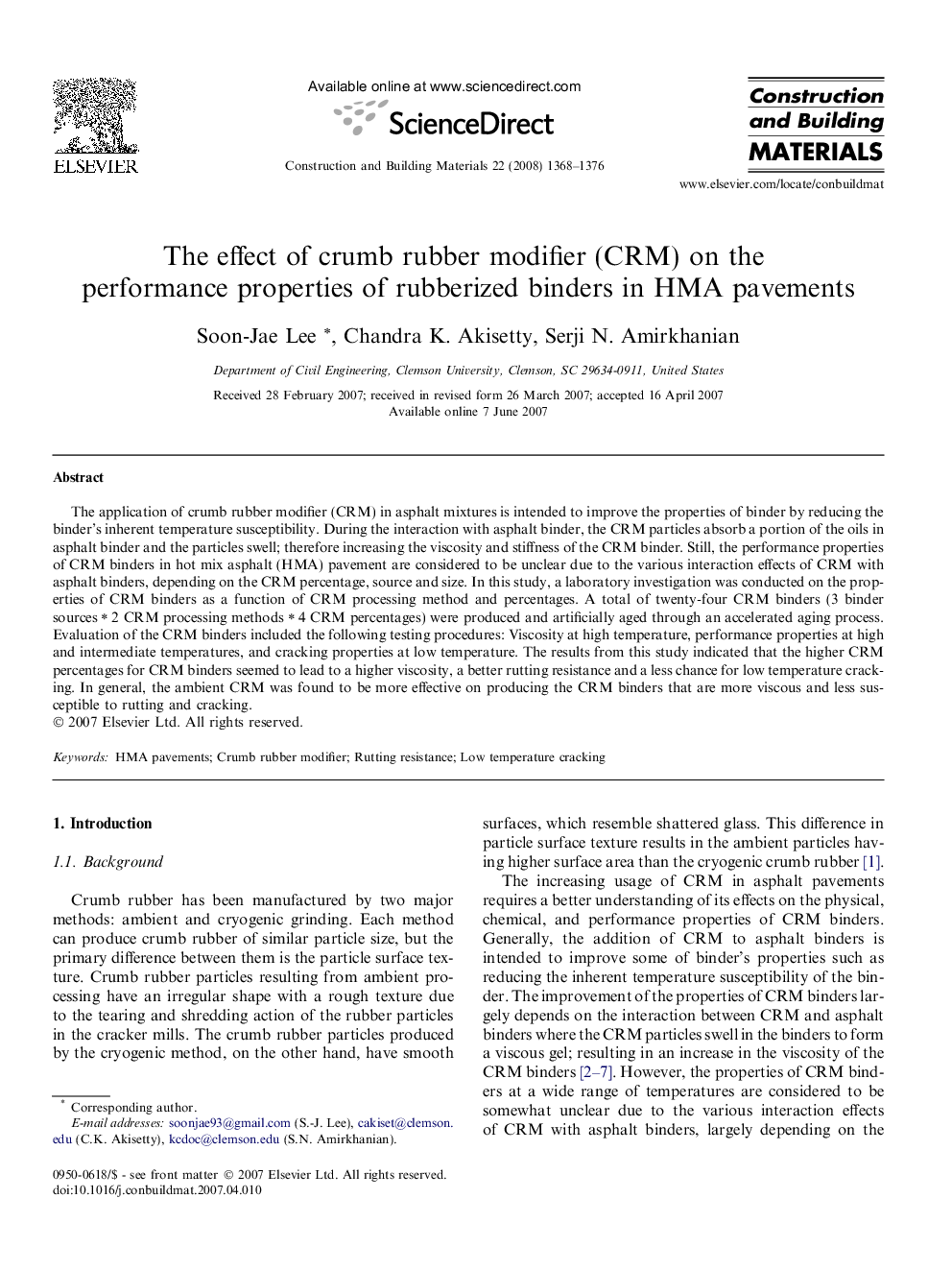| Article ID | Journal | Published Year | Pages | File Type |
|---|---|---|---|---|
| 261216 | Construction and Building Materials | 2008 | 9 Pages |
The application of crumb rubber modifier (CRM) in asphalt mixtures is intended to improve the properties of binder by reducing the binder’s inherent temperature susceptibility. During the interaction with asphalt binder, the CRM particles absorb a portion of the oils in asphalt binder and the particles swell; therefore increasing the viscosity and stiffness of the CRM binder. Still, the performance properties of CRM binders in hot mix asphalt (HMA) pavement are considered to be unclear due to the various interaction effects of CRM with asphalt binders, depending on the CRM percentage, source and size. In this study, a laboratory investigation was conducted on the properties of CRM binders as a function of CRM processing method and percentages. A total of twenty-four CRM binders (3 binder sources ∗ 2 CRM processing methods ∗ 4 CRM percentages) were produced and artificially aged through an accelerated aging process. Evaluation of the CRM binders included the following testing procedures: Viscosity at high temperature, performance properties at high and intermediate temperatures, and cracking properties at low temperature. The results from this study indicated that the higher CRM percentages for CRM binders seemed to lead to a higher viscosity, a better rutting resistance and a less chance for low temperature cracking. In general, the ambient CRM was found to be more effective on producing the CRM binders that are more viscous and less susceptible to rutting and cracking.
